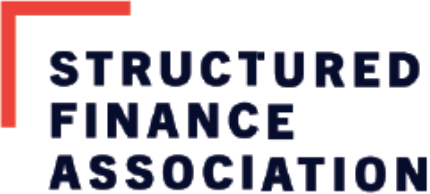Structured Finance Association Applauds Inclusion of LIBOR Language in ‘Omnibus’ Government Funding Bill
The Structured Finance Association (SFA) applauded inclusion of language in the Consolidated Appropriations Act, 2022 – also known as the “omnibus” government funding bill – that would ease the transition away from the London Inter-Bank Offered Rate (LIBOR), which is the benchmark index currently used to determine the interest rate that investors receive on floating-rate bonds and consumers and businesses pay on some loans. Inclusion of the language comes after U.S. Senators Jon Tester (D-Mont.), Thom Tillis (R-N.C.), and Senate Banking Committee Chairman Sherrod Brown (D-Ohio) and Ranking Member Pat Toomey (R-Penn.) introduced the Economic Continuity and Stability Act last week and follows House passage of companion legislation in December by a vote of 415 to 9.
“Final passage of this legislation will be a major victory for millions of American households and businesses, which faced risk and uncertainty absent congressional action,” said Michael Bright, CEO of the Structured Finance Association. “This bipartisan legislation solves a major challenge overhanging the consumer finance and capital markets. The bill provides a smooth transition away from LIBOR. And it sets a clear path forward for the roughly $16 trillion of contracts with no realistic means to be renegotiated or amended – including fixed income bonds, mortgages, student loans, and business loans. We appreciate the bipartisan leadership in both the Senate and House and look forward to the bill being signed into law by President Biden soon.”
In November, Bright testified before the Senate Banking Committee, telling Congress the roughly $16 trillion in “tough legacy” contracts that have no realistic means to be renegotiated and amended prior to the cessation of LIBOR “impact a broad range of American households and communities” and pose a “serious risk to the financial system” absent legislative action. SFA has been a leading voice in the massive effort to smoothly transition away from LIBOR and was joined by other leading financial services industry groups in announcing support for House-passed legislation in July.
Bright, who penned an op-ed in the Financial Times calling for federal legislation to “end this saga once and for all,” told the Senate Banking Committee in 2021: “After lengthy deliberation and debate, a consensus position across the entire market has emerged that a federal safe harbor for the transition of these tough legacy contracts is the only option to avoid costly litigation and consumer and investor disruption. The many other alternatives examined were simply inoperable. We now see that, absent federal legislation, retirees and savers who hold trillions of dollars of impacted bonds will be forced to absorb tens of billions of dollars in legal costs.”
SFA was joined by 22 other financial services trade associations in calling for enactment of the legislation. Text of the letter is available here.

